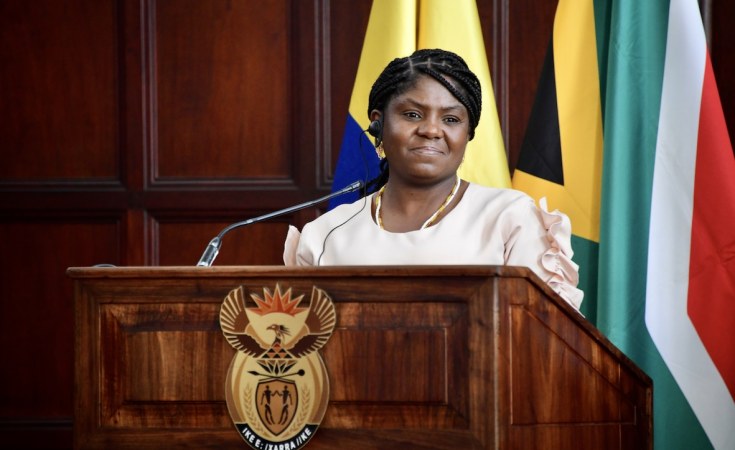Swahili will be taught in Colombian schools as a foreign language option, Colombia's vice president has announced. She says the move will help Afro-Colombians reconnect with their roots, but it caused an outcry among her opponents on the right.
Vice President Francia Marquez made the announcement last week upon her return from an official visit to Ethiopia, Kenya and South Africa.
The accord signed will enable Colombian teachers to travel to Africa to teach Spanish, while teachers from African countries, notably Kenya, will have the opportunity to teach Swahili in state schools in Colombia.
"It will be offered to Colombians of African origin and to anyone who would like to learn the language," said Marquez.
"This is important for reconnecting with roots and rebuilding historical memory."
But the announcement met with fierce criticism from Marquez's opponents on the right and overshadowed other agreements reached during her trip.
Political move
Pascal Drouhaud, a researcher and author on Latin America and president of the France-Latin America Association, told RFI that Marquez's decision was strongly political.
"It represents the social vision her government wants for Colombia. It highlights the inequalities in the country and enables her to talk about the inclusion of Afro-Colombians," said Drouhaud.
"For many years, she has been saying that being of African origin, being Black, in Colombia is more difficult than being of European origin."
Around 9 percent of Colombia's population of just under 52 million is of African descent.
Marquez is Colombia's first black female vice president. She was elected in June 2022 as the running mate of President Gustavo Petro, the country's first ever leftist president.
An environmental and human rights activist since her youth, she is a fierce advocate of multiculturalism and the inclusion of Colombia's Black and indigenous population.
That agenda has drawn relentless attacks on social media, many of them racist.
"Marquez brings something new, a breath of fresh air, breaking the traditional political apparatus Colombia has so far been used to," Drouhaud explained.
He is not surprised she has encountered opposition: "It is obvious she will face resistance because she is tabling the issue of social determinism and linking it to skin colour," he said.
Dog whistles
The vice president's first official African tour was described by right-wing commentators as an "expensive safari", with conservative politicians demanding to know how much it had cost the taxpayer.
"I've been to Europe and the United States before, and nobody asked how much I had spent," she retorted.
Some questioned why Swahili was chosen, suggesting English was a better investment or arguing that most of the slaves who reached Colombia came from western Africa, not the eastern region where Swahili is widely spoken.
"Marquez chose Swahili because it is the third most spoken language in Africa" with over 200 million speakers, said Drouhaud.
The vice president has said she wants to strengthen "South-South cooperation", one of the stated aims of her African tour.
'Total peace'
Marquez's efforts form part of a wider vision for Colombia put forward by the new left-wing government, according to Drouhaud.
"The vision of the government of President Petro for his country is that of total peace. This means opening dialogue with the former guerrillas, with Farc, with narco-militias.
"This obviously meets fierce resistance as it goes against what the conservative parties have been doing since the 1950s. It takes the focus away from security and shifts towards social issues like poverty, education and health."


